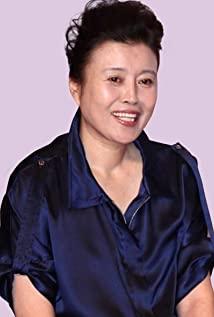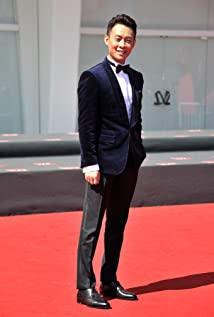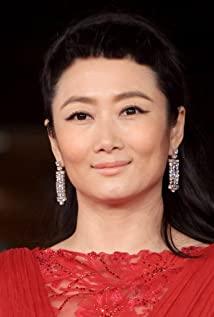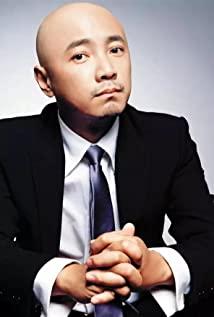After watching the movie at the end of September, I wanted to write too much. Precipitation until now, finally seems to have some clues. The film is not difficult to understand, and you can see what you want to see, but for the audience who have higher requirements for opposition, the film is not rigidly flattering, just a relatively neutral expression. There are no metaphors, there are no routines, and it can even be said to be straightforward, but at the same time, it also entrains the private goods that I want to entrain. is good text.
Finally, the camera freezes on the image of the woman named Qiaoqiao, which was captured by a surveillance camera. From this low-resolution image, you can only see that her limbs are leaning against a wall, but she can't tell that she's in a hurry or frowning. The images captured by the surveillance cameras are physical records, the opposite of all emotional expressions, so the information has been eliminated and shattered to the point of being completely unreadable, and all the viewer can see is her physical existence.
Many people who were deeply moved when they watched "Xiao Wu" or "Platform" criticized Mr. Jia's film for being a "drama", especially the section in which the UFO flew vaguely across the dark sky. I don't think so. "Children of Jianghu" is still not divorced from the atmosphere of telling the context of ordinary people's life, but compared with the era of "Xiao Wu" and the like, the context of ordinary people's life has gradually become magical. In such a magical current reality, art is rather weak; the probability of many real events happening is very low, and the probability of witnessing a UFO is not necessarily much different. I also have no doubt that in this day and age, a person can go through such a complex life. This conflict is full of drama, but it's not hard concave. Jia Zhangke's material is enough for him to tell a complete story of suffering life in the changing times. Even if the answer is still incomprehensible, this is life in reality like a play, but it is not "playing". This movie has been compared by many people to "Tian Destined" because they have relatively ups and downs in Jia Zhangke's documentary-style film language. However, I think "Children of Jianghu" is still a little bit better than "Destined" because of the weakening of the "sense of events". It's not that the event feels bad, but that the event is naturally a movie theme, because it has time, place, characters, causes and effects, and it is "a mutation of the world of everyday life...thus changing what is perceived by the daily state." The hidden relationships and their tensions are highlighted (Ying Xing: "The Imagination of Field Work and How I Write "Story of Dahe Immigrants Petitioning".)" And the long but unsolved tragedies in a single life are often unresolved. So clearly, that's the real dilemma. It's a lot harder to convey such a dilemma than to tell a gripping two-hour story. The director also knows this very well, so "Children of Jianghu" uses one or two protagonists to describe their lives, while "Doomsday" uses four events to shape the group portrait - because each one is still a little thin.
"Children of Jianghu" is not a typical female perspective film. But naturally placing women in the subject position makes the storytelling very sincere. At this point, the recent films of the "seventh-generation" directors who also have the color of rivers and lakes, such as Jiang Wen's "Evil Does Not Overpower the Right", are too hypocritical. Merely describing chivalrous women or women's chivalry does not change the dictatorial suggestion that men are the talkative ones in Jiang Wen's films, and the motherhood or goddess of women is a dwarf of women. In "Children," the women and men together really drive the story, and because of the women's real presence, the film recreates a lot of the familiar atmosphere. That is a characteristic that is unique to some Chinese female groups and has never been alienated by the commodity society. To use a popular word to describe, it may be "lonely brave". It is this kind of loneliness that keeps the order of life that is collapsing everywhere with a reserved dignity.
As an actor, Zhao Tao has a strong sense of being an amateur. It feels like an amateur, but it can better express the dramatic effect of Jia Zhangke's theme. This should be the reason why Jia Zhangke has always made his daughter-in-law play the leading role. Zhao Tao's Qiaoqiao is like most people. Only when he is in a panic, he has something special called expressions, and the usual emotions are not very obvious, and his face is not vivid. A Chinese-style female doll, with clean and ordinary eyebrows and slightly swollen eyes, can almost be abstracted into a symbol. Zhao Tao's expressionless face from beginning to end makes the audience feel strongly convincing that they are also in this magical reality. In addition, I think Qiaoqiao is on the one hand the main line of the story, and at the same time takes on the responsibility of a narrator, as if she has been watching the story she is in with cold eyes, and even if the direction of the story is not her prediction, she can quickly make up her mind and act. This is the same as many of us, that is, there is no time to grieve and sigh when the disaster comes, and we must spend the shortest time thinking about how to move steadily next. We will all become people (no matter how rich inside) deprived of our external emotional expressive agency by drastic changes in our times, living in the unforgiving images of cameras.
What impresses me is that in the whole play, the costume changes that represent the four stages of Qiaoqiao's life are very distinct. It's written from a very female perspective. Qiao Qiao was born as a child of a factory and mine. The living space of the children of factories and mines is filled with the state capitalist order. In the era of developing heavy industry, central, northwest, and northeast China are full of factories and mines, villages and towns are integrated with factories and mines, village leaders and factory leaders are not separated, and ordinary people are machines and disgraced. Villages and towns are equivalent to a kind of collective dormitory. The traditional gentry class no longer exists, and there are only two levels of difference between leaders and workers. Qiaoqiao is a flower and butterfly in the factory and mine. She is beautiful and rich in gold. You can give Dad money to let him not worry about the things in the factory. Even if she is in the underworld, she should be a beautiful and good daughter in the eyes of all uncles; but for the children of factories and mines, being too ostentatious is a form of rebellion. She easily wants to buy out her father's dependence on the past order with money. She is as bold as the flower and butterfly dress she wears. After being released from prison, she showed a determination to integrate into society: wearing a plain lapel short-sleeved shirt without any decoration, beige pants that do not accentuate the curves, and a low ponytail, typical of middle-aged women's clothing. Finally, when she was the eldest sister in Datong, she wore a black trench coat, leather coat, black trousers, black Chelsea boots, perm and big waves, and wore a high-end and simple amber ring. The changes in Qiaoqiao's clothes are very hierarchical, suggesting that she has changed from age experience to social status, as well as the changes of the times.
The biggest characteristic of changing times is disorder. Since it was rumored that the factories and mines in Shanxi were going to move to Xinjiang, the panic caused by this disorder spread. The factories and mines no longer belong to the state, and the privatization of factories and mines has made workers accustomed to the state-run system lose their sense of security. At this time, some of the more daring people have enjoyed the dividend. For example, Brother Er Yong, who was born in the underworld and then devoted himself to real estate. But he didn't enjoy it for a long time. As soon as he learned to appreciate the "elegance" ballroom dance, (and perhaps possessing the body of the ballroom dancer's teacher), he was replaced by a new order that grew more savagely. The same replacement also happened to Bin Bin, who grew up in the same order as Brother Er Yong. Before a major turning point in the plot, Qiao Qiao said that he wanted to go to Hohhot, which is 200 kilometers away, to eat shaomai. The willful pleasure of being a king's woman is the presumptuousness of the princes of Fenghuo Opera, and it was almost immediately destroyed by the young motorcycle youths who were looking for revenge. The old order is often headed by the king or his wife when they are extravagant, which is an expression full of tension. And this thick metaphor of dynasties, we all know it doesn't portend that the new order is better than the old.
There is also a very wonderful description of disorder that appeared when Brother Er Yong was at the funeral. The two dance teachers who danced the national standard came to send the spirits, unbuttoned the windbreaker to reveal the ultra-short dance clothes on the spot, and jumped up with flying thighs. This sense of absurdity is characteristic of contemporary China. As we all know, the traditional funeral ceremonies in Chinese rural society are definitely not based on lyricism, but on re-establishing the order behind a deceased person. And dancing to pay homage to the dead is almost lyrical in primitive society. Cracks have appeared in some of the once rigid traditions, and new traditions are unable to grow. Therefore, the expression of human nature and the naked pomp and pomp take turns. In some villages and towns funerals, you can go out first, put on a linen and wear filial piety, and kowtow according to the elders and youngest; then hold a banquet in the hotel, with the emcee in black suit reciting Daguankou; finally, invite the dance troupe to dance for the deceased. Dancing. This sense of patchwork shows that the rural order of the "differential order pattern" in Fei Xiaotong's writings has itself been destroyed by many forces and is unable to maintain basic decency. It can also be said that disorder is indeed ubiquitous in China's rural society.
In the old local order around the beginning of the 21st century, the population mobility was relatively small, and everything always contained a little family warmth. After Brother Er Yong was killed, the captain of the public security team sat down with the elder brother and younger brother of the local triad, informally. There are also two women, Ersao and Qiaoqiao, who are allowed to exist in the entire room. This scene weakens the attributes of social roles, more like a group of relatives who are engaged in different occupations but reunited because of funerals. At this time, I don't think it's fair to criticize the den of snakes and rats, because they are all locals, and it is very likely that their uncle is their uncle. Even though their nepotism may cause problems in law enforcement, it is understandable. , and does not pose much harm. In contrast to this scene, it is the national flag hanging in the "Chaozhou Chamber of Commerce". This contrast is very subtle, and it is hard to say that the director did it intentionally, but we can interpret it as a material. The connotation of contrast is the union of the underworld and the white. The "college student" of the military division was once a Taoist person, and the form of the chamber of commerce was a semi-official organization, which showed that the role of the military division was relatively successful and thorough. What is the "Chaozhou Chamber of Commerce" doing in Fengjie? Of course, it is to carve up the benefits of relocation. As we all know, the relocation itself was tacitly approved or advocated by Bai Dao, and when a contradiction that is difficult to reconcile is encountered, the underworld methods must be used to level it out. The principals in the "Chaozhou Chamber of Commerce": "College Students" and Lin Jiayan are people who play games in the Baidao system; and they disdain to do dirty work that is unnecessary to do, and they need the brutalist Bin Bin. humanoid. Flying the national flag is a sign of compromise or compliment to official discourse, but it can also be understood as the role of an institution as its spokesperson. The underworld and the official system are also a reflection of the interaction between "big traditions" and "small traditions" in the style of Stephan Feuchtwang. In the context of increasing population mobility and increasing atomization of individuals, the only thing that can make a nest of snakes and rats is profit. The snake and the rat are no longer individuals, and they are not united by the small energy of a police chief and an underworld boss, but the energy of two huge groups—exploitation in the context of globalization. Groups with no connection other than interests are done - and that's very contemporary capitalism. Of course we don't sing about the evils of pre-modern life, but we should at least sing an elegy.
Under this masculine new order of contemporary capitalism mixed with fascism, women like Qiaoqiao seem to be carrying the seeds of the old order. Wherever she fell, she turned green again and came alive. Although her struggle is powerless, this greenery cannot be denied. For example, the female thief played by Ding Jiali stole Qiaoqiao's money, which was all of Qiaoqiao's savings, but Qiaoqiao still grabbed her handbag and fought off a group of men who were chasing Ding Jiali (maybe Ding Jiali also stole their money). ), and shouted: I told you to hit a woman, I told you to hit a woman! "Don't hit women" is a famous rule of the rivers and lakes (such as Jean Reno's creed no woman no kid in Leon the Professional), At this time, she has unconsciously maintained the order carried in her blood, and reproduced this order. She even got on the car to Xinjiang so confidently, as if she was not afraid of the unknown distance at all, because she was already equipped. The scene with Xu Zheng is also wonderful. Xu Zheng's appearance has a Chen Peisi-like sense of insincere and useless, very harmless and funny, but he wants to keep him away. Whenever I see this kind of person, I always feel that he is not going to lift it (of course it has absolutely nothing to do with it). The image of the liar commissary owner really suits him. With the eyesight of having been in the society and squatting in the classroom, it is impossible not to see his humble identity, but he is still naturally attached to it, which can be called "simple and neat". Perhaps it is not appropriate to say that it is not suitable to be attached, but to be together. But the reason why this person can be different from the underworld eldest brother is because her heart is dead. There is nothing more grief than the death of the heart, the death of the heart to allow oneself to try and make mistakes. This is the sign that the new self-universe has begun to operate. Even if it's not the owner of the liar, it's okay to change someone; any man who can make sense and wave to her at this time is okay. The former ruthless man was strong and taciturn. When women were still weak, if they had made friends with such men, they would instantly know that the other party was definitely not rich and lustful when they encountered a train full of people. But now those romantic standards don't matter to her, she's reassembled her life experiences into nourishment, understands that the world is indeed changing, and is ready to hit the road again anywhere. After fighting with the liar shop owner, she realized that such a person can be independent of the world, and does not need any help from the weak or the support of the strong. Here, some female groups are endowed with the status of carriers and reproducers of a "place", but such female groups are often proficient in survival and have a certain sense of inextinguishable natural order. Jia Zhangke discusses the identity of such women in many films, because their lives reflect many facets, both family and society, as well as their own. This is different from the various "saving-being saved" paradigms in Jiang Wen's films. "Saving - being saved" only exists in imagination, and most of the time in real life, no one can be fulfilled. They are all self-fulfilling first. The "self-fulfilling self" paradigm seems to be the least pessimistic at the moment.
In fact, the last paragraph of the film made Binbin paralyzed and returned, which is a side description. It is a side description of the fact that Qiaoqiao has become a person with an independent personality, and once again reproduces the changes in Datong City, where they once fell in love and separated. This time line spanning nearly 20 years is the time line for the most urgent development in China and the time line for the most dramatic changes in the urban landscape. Xin Datong, which has entered the stage of rapid urbanization, makes Binbin who is returning home unfamiliar, but Qiaoqiao maintains the chess and card room that Binbin had run in the old days in this new Datong. Qiaoqiao's management is two-dimensional: hostess style and salary-paying style; these two dimensions are clearer in the new order that requires compliant operation and warmer in emotional maintenance compared with the single-line dimension of the previous Jianghu style patriarch. . Of course, this artistic processing may be naive. If such a chess and card room really exists in reality, I am afraid that the female boss's IQ and emotional quotient are not enough. In addition to her ability, she must have her own innocence. However, this is not worth scrutinizing.
Jia Zhangke is not in a hurry to concoct his own "movie aesthetics," which is comforting. It was criticized before that "Tian Destiny" is a film that Jia Zhangke wants to transform into a commercial genre. "Tian Destiny" is indeed a small routine that uses more commercial genre films, but it is still a bold attempt, so Jia Zhangke's style has not weakened. Compared with the restlessness of other first-generation directors who are eager to use the so-called stylized "camera language" to establish a biography for himself before his death, Jia Zhangke seems to be slow. This kind of thing can't be done deliberately, it will bring a lot of embarrassment to it. And if I have to say what his film aesthetics are, I think it is probably the uniqueness of the focus itself in each shot, rather than the uniqueness of the aesthetic effect. For example, the images of the Three Gorges in Jia Zhangke's films are particularly recognizable. Of course, in addition to the recognition of the scenery of the Three Gorges itself, he will also deliberately focus on many things that are "not in the painting", and this kind of thing itself brings the recognition of "lens language". Like those huge billboards that stretch across the mountains and rivers; or people from all walks of life are waiting for the barge, some city people are fashionable and stylish, and there are disheveled farmers with livestock. This is actually the distinctive characteristics that he has extracted after selecting and portraying the crowds, and expressing them naturally expresses these distinctive features, and thus has his own "movie aesthetics". It's not about choosing words, it's reading between the lines.
In the film "Jiang", I personally think that Section Chief Jia is not trying to show the old-time gangster-style rivers and lakes, nor the contemporary police and bandit-style rivers and lakes, nor write history with love, because those are all fragments, not even parts. Don't expect blood to be splashed for five steps just because "Children of Jianghu" has "Jianghu" or Liao Fan's ruthless shoehorn face on the poster. There is indeed no husband and wife in the husband and wife lung film, but the reason why it is called "husband and wife lung film" is still widely circulated, and it is definitely not that it has nothing to do with the husband and wife. Therefore, the underworld life that sticks to the slaughter is already over in one third of the whole film. And what the director laid out after that was the real world, the life context he had been paying attention to before. On the contrary, the rules of the rivers and lakes of fighting and killing are more simple and easy to understand; the real world of rivers and lakes is full of cliffs that are invisible to the naked eye. What is even more terrifying is that the whole world is in this kind of rivers and lakes. To make a living, you must enter the arena. "The spring is dry, the fish are on the land, they are wet with each other, they are wet with foam, it is better to forget each other in the rivers and lakes." Jianghu is not a place for you to depend on each other for life, Jianghu is a place for you to forget each other, forget that kind of small love and small scene, forget that kind of small favor and small favor. Embracing each other is to continue life, and forgetting each other is the beginning of standing in the rivers and lakes. We are wary of the negative consequences of the atomization and miniaturization of individuals in postmodern society, and we are also well aware that the trend of globalized capitalism is to obliterate individual characteristics. Using this kind of Zhuangzi's naturalistic philosophy, this extreme individualism, and this useless big tree (樗) should be praised and respected to solve the predicament in the post-modern rivers and lakes is really very good and very final.
The English name of the film "Ash is Purest White" comes from a dialogue between Qiaoqiao and Binbin in the film. Qiao Qiao said, "Volcanic ash should be the cleanest, right?" What has been smelted and burned is the cleanest, just like life and people's hearts. In this era, we can’t find a sense of belonging in our hometown or in a foreign land. We float around in various trials, and in the end, we all turn to ashes. As ashes, there is little difference between falling in the homeland and falling in a foreign country. After all, where does the loess not bury people?
View more about Ash Is Purest White reviews











